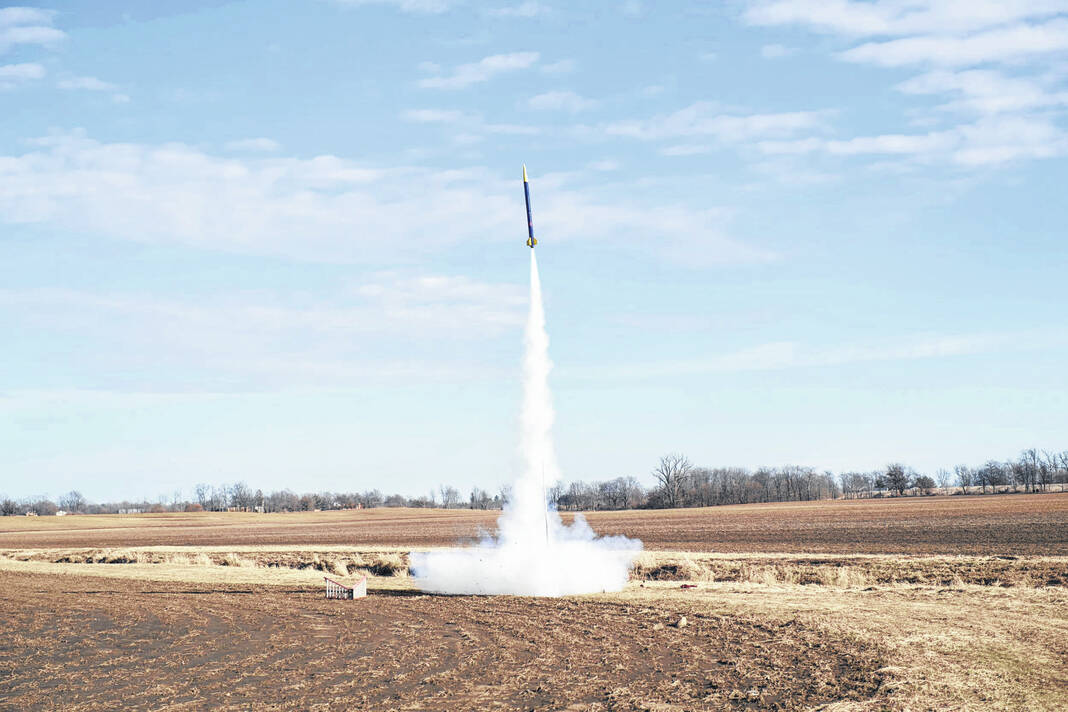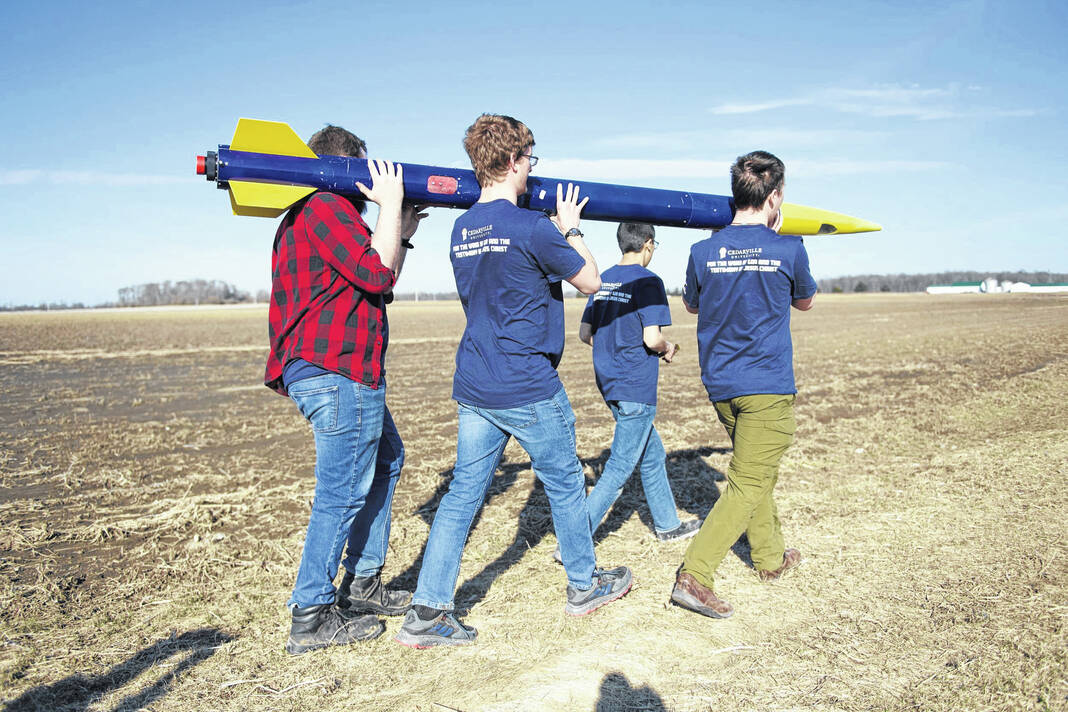
Submitted photos
A team of Cedarville University engineering students will compete with dozens of schools at NASA’s 2023 Student Launch competition in Huntsville, Alabama, April 15-16.

Submitted photos
A team of Cedarville University engineering students will compete with dozens of schools at NASA’s 2023 Student Launch competition in Huntsville, Alabama, April 15-16.
By Alex Boesch
Cedarville University
CEDARVILLE — A team of Cedarville University engineering students is shooting for the stars with its senior design project, working toward competing with dozens of schools at NASA’s 2023 Student Launch competition in Huntsville, Alabama, on April 15-16.
For the competition, 10 mechanical, electrical and computer engineering students will design and program a rocket that may soar up to an altitude of 6,000 feet and then land successfully, simulating potential exploration rockets on Mars. Last year was Cedarville’s first year competing in NASA’s competition, winning second-best rookie team and the second-place reusable rocket award.
“I’m really glad I ended up in this group for my senior design project,” said senior computer engineering major Nathan Angstadt from Feasterville-Trevose, Pennsylvania. “We’ve spent a lot of time already predicting how high the rocket will go and designing the payload to receive control commands. Working on this has showed me how amazing of an opportunity this is.”
Joining Angstadt on the team are two electrical engineering majors, Jonathan Gregory from Hudson, Ohio, and Jordan Edwards from Marysville, Ohio. The rest of the team is made up of mechanical engineering majors Annie Rourke from Highlands Ranch, Colorado; Eric Hansen from Strongsville, Ohio; Joselyn Gross from Pullman, Wyoming; Kaitlyn Kijak from Windsor, Connecticut; Laurin Meisberger from Cedarville, Ohio; Nicole Heath from Brookline, New Hampshire; and Weston deRu from Bartlett, Illinois. Dr. Thomas Ward, professor of mechanical engineering, and Dr. Timothy Tuinstra, professor of electrical engineering, advise the students.
Learning to build a functional rocket requires the students to be creative and adaptive to new skills.
“We aren’t taught about rocketry in our classes,” said Angstadt. “It’s so interesting how we take what we have learned in the classroom and apply it to something completely different. I think it’s really representative of what the real world will be like. You can’t be taught about the specifics of every possible career field, so I’m glad I can take what I have learned and apply it to something else.”
Working on this project will not only further the education of Cedarville students but facilitate community impact as well.
“Over the course of our project, we will get to teach over 200 students rocketry,” said Angstadt. “We’ll be going to high schools and middle schools. It’s a very neat part of the project that you wouldn’t expect a few engineers to do.”

